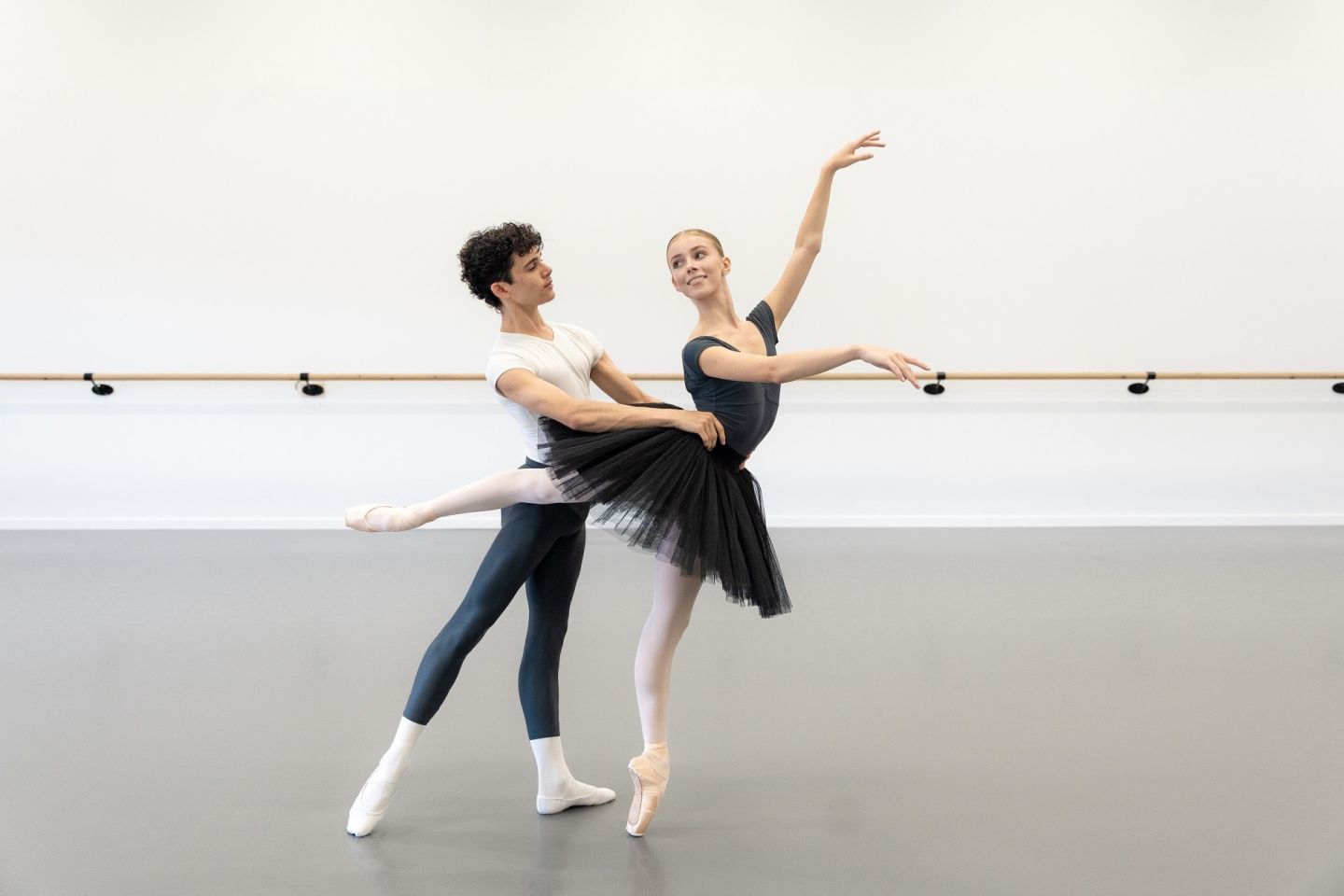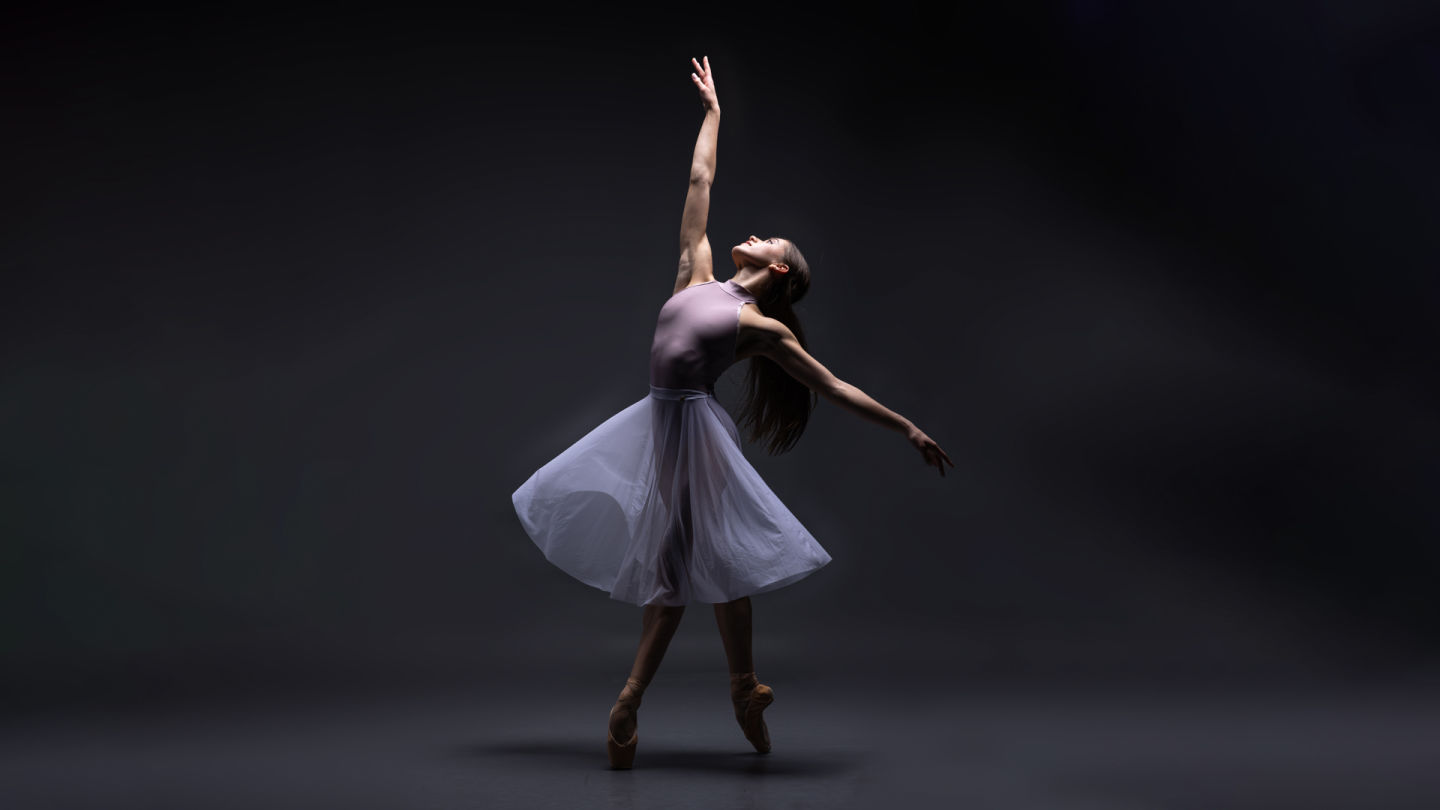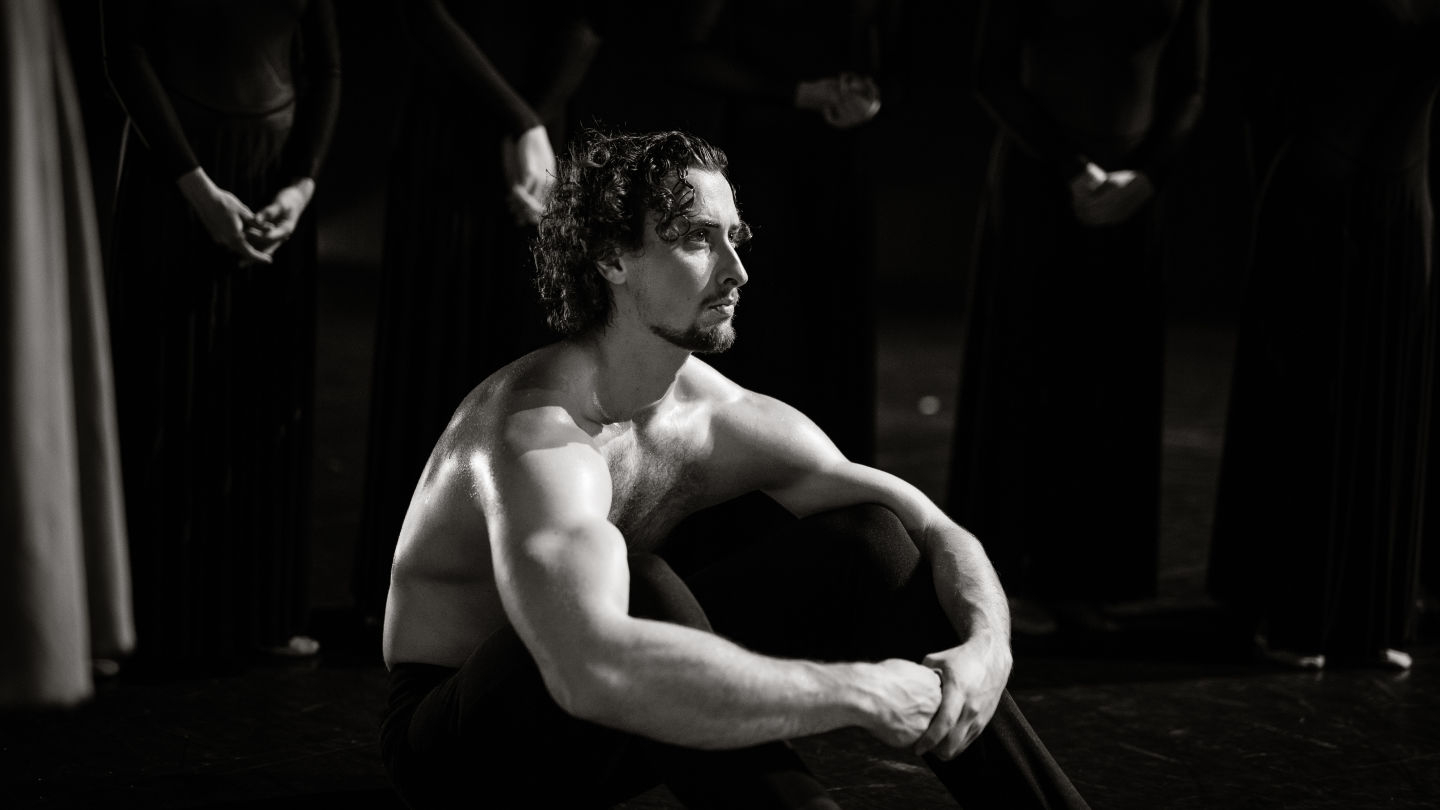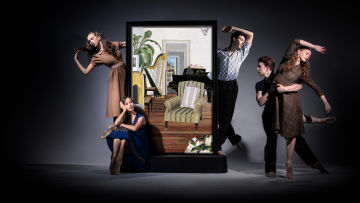Audition Tips with Alisa Pukkinen & Max Jones
by Kimberley Tham

As audition season at the Queensland Ballet Academy approaches, I sat down with Academy Alumni and Jette Parker Young Artist, Alisa Pukkinen and Pre-Professional Program dancer Maximus Jones, to have a chat about their experiences!
Hello Alisa and Max! Could you start by telling our readers about your audition journey to Queensland Ballet Academy?
Alisa: I’m originally from Adelaide and had met Paul Boyd (Academy Ballet Master and Resident Choreographer) and a few dancers from the Company when they taught a masterclass in the city. I remember feeling so comfortable, I decided getting into Queensland Ballet would be my goal. When the offer came, it was an instant yes!
Max: I grew up in Coffs Harbour and moved to Newcastle when I was 15 to study dance full-time. At 16, I auditioned for the Joffrey Ballet in Chicago, Illinois, and was offered a full scholarship for two years in their conservatory program. When COVID hit, I returned home and auditioned for Queensland Ballet Academy’s Pre-Professional Program and have been studying here since.
Both of you had quite different experiences. What is your usual routine for audition day?
Alisa: Food is an important routine for me. The night before, I’ll have a big bowl of pasta. On the morning, I like cooking eggs for protein, knowing it will help sustain me for the day. Right before the audition, I always have a banana.
Mentally – I like to know the schedule off the top of my head because if I’m stressed, I know it will translate into my performance. In the morning I make sure I have ample time to get ready and warm up.

Auditioning for an academy vs company can be very different, what have your experiences been like?
Max: The Academy is looking for raw talent and ability to grow. With auditioning for a company though…it can be quite cut-throat. Most companies know what they are looking for. You can be a great dancer, but they might be looking for someone with high legs and good feet, whereas I’m not that person.
Alisa: I remember during my audition for the Academy, we were given corrections and had to repeat the exercises which isn’t very common. I guess they wanted to see how well you can adapt and apply what you’ve been taught. It reflects your potential and that’s what academies look for. Whereas companies look for the refinement of your technique and how well you perform.
It must be a challenge balancing your artistry, technique, and passion at the same time.
Max: I’d say it’s important to work on your technique and artistry every day during company class. Performing onstage is also a big thing – it’s important to have had that experience prior, because they like to see that you’ve had a variety of experiences.
Alisa: That’s why the Academy’s Pre-Professional Program is great because we often get opportunities to work alongside the Company in main-stage productions. Having those experiences on your resume will always be helpful when auditioning. Plus, seeing the professional dancers is very inspiring and makes me want to work even harder.
Do you get an interview or receive feedback after auditions?
Max: Some companies offer feedback about your dancing. I was told by one of the ballet companies in Germany that they would like to see me work on my back mobility and upper body coordination. In interviews, they want to get to know you as a person, see if you are a right fit for the company. Remember to smile! It’s always great to approach interviews with a big smile!
Alisa: I’ve had interviews after auditions where the Artistic team had a chat with me about what my goals were. Also, interviews are a great way for them to see if you are the right fit for the company. It’s just like any job interview.

I'm sure there are times when you don't perform as well as you hope, how do you move past them?
Alisa: It’s just something you have to learn over time. The more mistakes you make, the easier it is to get over them because you realise how little they actually mean. Everyone makes them – even Principal Dancers, but they just keep dancing and look beautiful doing it. There’s no point getting caught up in it – you’ll lose focus and it will affect your performance.
How has the Academy prepared you for auditions?
Max: The classical training at the Academy has really helped lay a solid foundation for my technique. It helps that most of the teachers used to dance professionally, so they are very approachable and generous with their advice. They understand that the end goal is finding a job and really try to support us with our auditions
Alisa: Career Preparation is actually a subject in the Pre-Professional Program at the Academy. It is theory based as well as practical. We were taught how to prepare our cover letters and resumes, and the teachers had mock interviews with us. They would sometimes allow us to film variations learned from classes to use for video submissions.
Lastly, can you share a funny/interesting audition experience?
Max: It’s funny and embarrassing…but I had Happy Birthday sung to me during the Zurich Ballet audition last summer. At the end of the class, the pianist started playing the song and all the Artistic staff started singing. I had to hold up my audition number, so they knew to sing ‘Happy Birthday Number 71’. I guess that was a hint that I had made it.
Alisa: My audition with the Academy was definitely one for the books. The audition had started early while I was in the bathroom and when I came out, everyone had already gone in. I had to make the walk-of-shame across the room, to the very end where my barre spot was, thinking my career had ended even before it could start. In hindsight, my “ballet runs” across the room were probably what impressed the judges.
For information about upcoming auditions:



